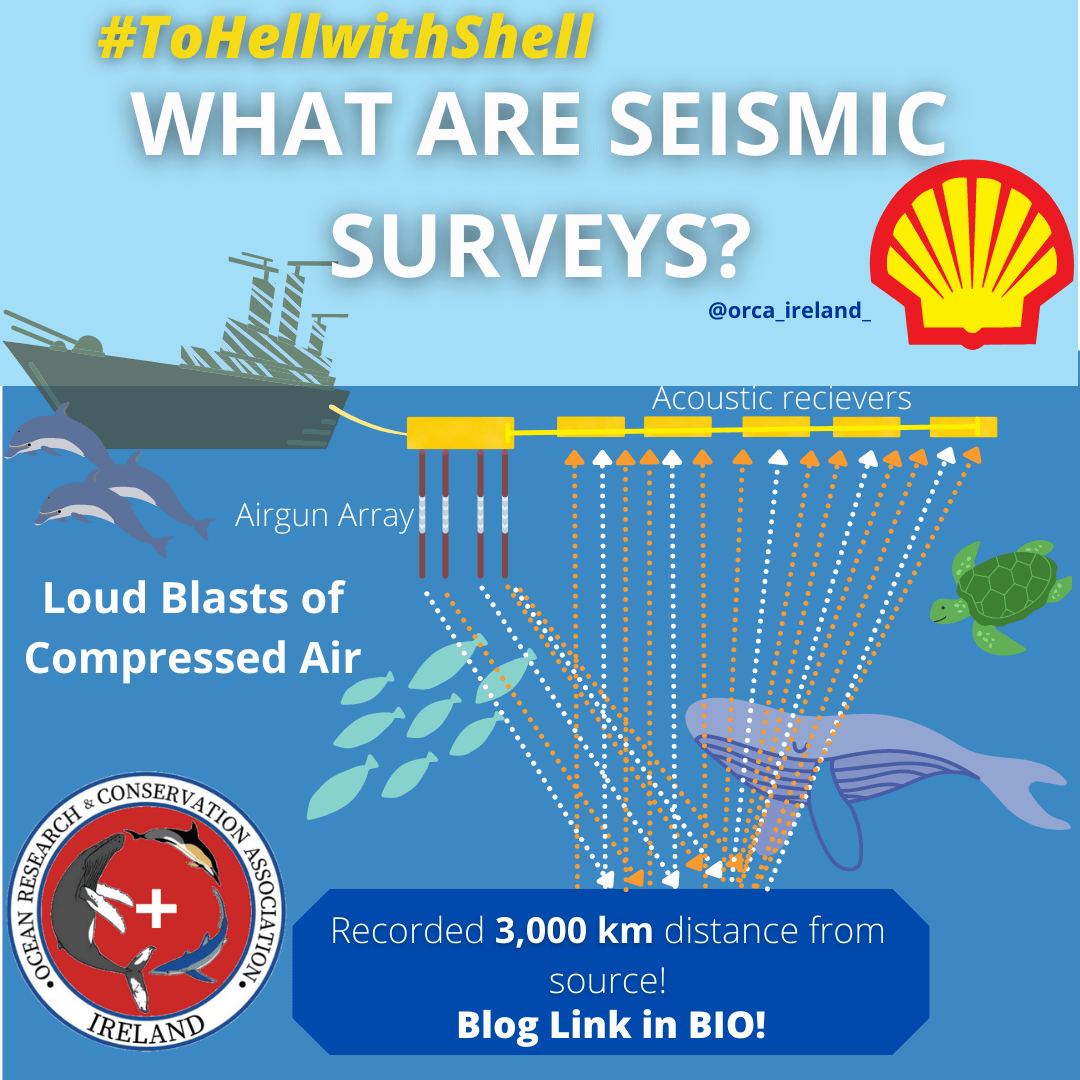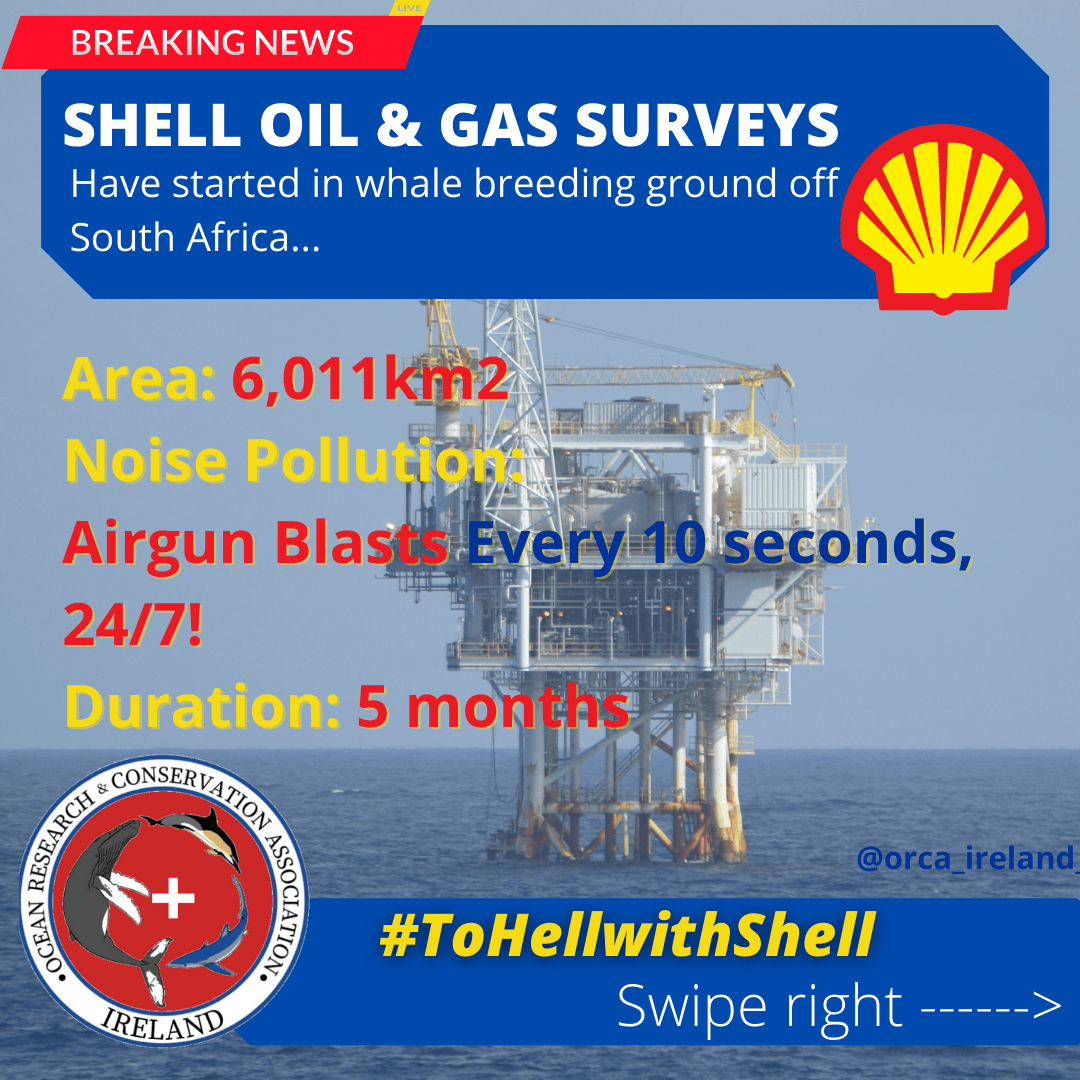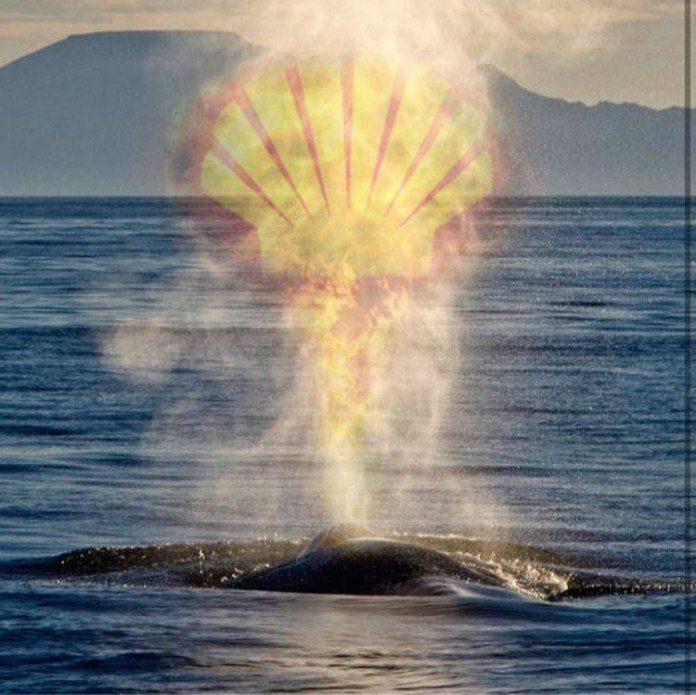Shell Oil & Gas Seismic Surveys Threaten Whales off Africa
Shell Oil & Gas Seismic Surveys Threaten Whales off South Africa
ORCA SCI-COMM TEAM | 11th of December 2021
Across the globe there is public outrage due to the planned seismic surveys to search for oil and gas deposits off South Africa's Wild Coast by energy company Shell. Environmental NGO's, Human Rights Organisations and local fishing communities are trying to stop the seismic surveys through litigation, due to the harmful impact seismic surveys can have on marine wildlife. South Africa is home to 37 species of whales and dolphins, but these anthropogenic activities threaten the survival of wild whales off Africa's south coast. Let's dive deeper to investigate what seismic surveys are and how they can harm whales!

What are Seismic Surveys?
For the last 50 years, seismology has been used in both terrestrial and offshore maritime mineral exploitation. Seismic surveys employ a simple methodology; to measure the time it takes for a compression wave ('sound') to travel through solid material, strike a reflecting surface and return to a recorder to determine the orientation and thickness of layer hidden below the Earth's surface. Seismic surveys use sound pressure waves to detect oil or gas deposits for extraction i.e. drilling Test Welds.
Offshore seismic surveys use an array of airguns towed on a cable behind a ship to blast loud sound pulses, which travel through the water and into the ocean floor. The sound wave is extremely loud to human ears, 100,000 times louder than a jet engine, and can be heard from up to 3,000 km distance. However, as the seismic blast is far lower in amplitude than an earthquake , the pulse from the explosion in the airgun is not sufficient enough to cause any physical damage to faults or ocean floor structures, therefore, it is considered "geologically safe".

Seismic Surveys Threaten Marine Wildlife:
'Royal Dutch Shell' will spend the next several months searching for deep-sea oil and gas reserves off the coastline in South Africa. This news comes with huge backlash from environmentalists and advocates around the world due to the potential impact of big underwater explosions that will continue to contribute to the climate crisis and will disrupt marine life, having devastating impacts on the livelihoods of local fishing communities and the precious ecosystems off the coast of South Africa. The surveying began on December 1st 2021, off the Eastern Cape’s virtually untouched Wild Coast, during whale season (June - December), when whales mate and rear their calves.
Seismic surveys are not uncommon on the South Africa coast, however, with more growing awareness of issues such as biodiversity loss and climate change, this particular survey planned has sparked major outcry. The Wild Coast of South Africa hosts unique and diverse marine biodiversity, and is a valued and especially rich part of African Heritage. Exploitation and degradation of the marine environment to discover new fossil fuel sources are inconsistent with global obligations to stay within planetary boundaries for a sustainable future. In fact, exploration for oil & gas are in opposition with the promises made by the South African Government during the 2021 United Nationals Climate Change Conference (COP26).

What are the Impacts of Seismic Surveys?
Seismic surveys and subsequent oil and gas extraction (drilling), are generally carried out along continental shelf slopes, where oil reserves are easier, and cheaper to access. Continental shelf slopes, however, tend to be highly productive marine ecosystems that provide habitat for a range of marine fishes, mammals, sea turtles, seabirds and other marine wildlife.
Every organism in the marine environment is affected by noise pollution; from plankton, which forms the base of the food web in the marine environment in the form of microscopic plants (phytoplankton) and animals (zooplankton), to large whales. Zooplankton can be severely affected by noise pollution and blasting of seismic airguns can result in large scale die off's of zooplankton.
The leatherback sea turtle (Dermochelys coriacea), is a critically endangered species that is particularly vulnerable to the impacts of seismic surveys off the south African coast. Leatherback sea-turtles frequent the waters off the Agulhas Front, a 6200 km2 Marine Protected Area (MPA) that was proclaimed in 2019 and which is the farthest offshore of all MPAs and sustains a wide variety of marine life. The area is a key foraging habitat for the leatherback sea-turtle, within an Ecologically and Biologically Significant Area (EBSA) that is recognised for its role in the life history of tuna and seabirds.
Whales and dolphins who rely heavily on sound to communicate, navigate and hunt prey are particularly vulnerable to acute and chronic noise pollution from seismic surveys, with dominant frequencies of seismic airguns being typically below 100 Hz, masking communication sound signals of large baleen whales, who vocalise in the range of 10 Hz- 1 kHz). The use of high frequency sonar mapping during seismic surveys has been linked to the mass strandings of deep-diving toothed whales. For example, in Madagascar, 100 melon-headed whales mass stranded due to sonar interference with their echolocation, likely when the whales were at depth, causing them to surface extremely quickly and gas bubble lesions to form in their bloodstream, resulting in a phenomena known as "the bends", or decompression sickness.

What is an MPA?
The IUCN defines an MPAs as'
"A clearly defined geographical space, recognised, dedicated, and managed, through legal or other effective means, to achieve the long-term conservation of nature with associated ecosystem services and cultural values".
Global estimates of how much of the ocean is protected range between 1 to 7% as there are many types of protected areas and variable governments and organisations definitions of protection. Despite these differences, countries agree that more ocean protection is needed.
Mitigation measures are to be deployed during seismic operations in South Africa’s petroleum industry, including the National Environmental Management Act (Nema) regulations that required a 2 km buffer zone from marine protected areas. Mineral Resources and Energy Minister Gwede Mantashe said; "South Africa imposed a 5 km buffer restriction to licensees", in defence of South Africa’s right to capitalise on opportunities in its natural resources, including oil and gas amid the push back against Shell’s seismic survey off the Wild Coast.
Shell’s oil and gas exploration on South Africa's Wild Coast will be destructive for people and nature. We need your help to try and stop it! Join a global movement and sign the petition to urge Gwede Mantashe, Minister of Mineral Resources and Energy to immediately STOP Shell from conducting a seismic survey in this area NOW.
SHARE THIS ARTICLE













